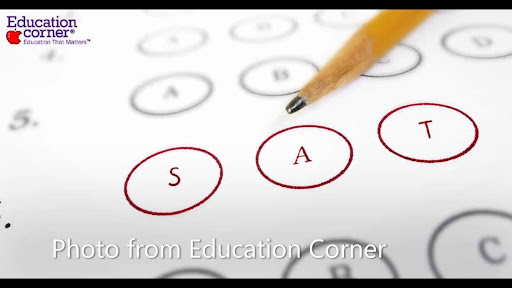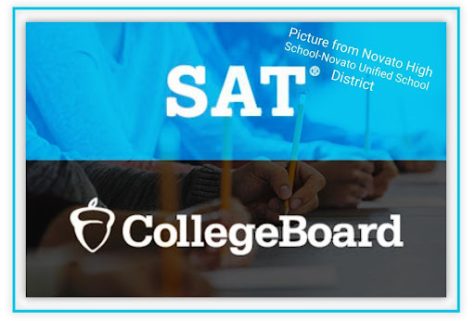SATs Gone Virtual

This picture of a pencil with the SAT will soon be obsolete Via Education Corner
SATs are standardized tests that initially stood for Scholastic Aptitude Test, but the acronym was dropped as time went on. It was introduced to high school students in 1926. Brigham’s test was evolved into the SAT. It was intended to assess the natural ability for learning rather than the received knowledge tested on the “College Boards.” Since its start, its name and scoring have changed. Starting in 2024 for students in the U.S. and 2023 for international students. The digital SAT will shrink from three hours to two, with shorter reading passages and usage to a calculator on the math section. The virtual SAT will be designed to autosave so no one would lose progress or time. The digital score would be scored out of 1600, and more time will be given per question. Another change is choosing their devices, including a tablet or a laptop, and school devices. Some things that would stay the same are the testing place. It will still be held at a test center or a school. The results, on the other hand, have changed as well. What went from weeks to get the test results back has been shortened in days. The original plan was to offer an at-home digital test but scrapped it due to students having access to three hours of uninterrupted internet and power. This change was due to the relevance of SAT and ACT. Some colleges don’t require a test score for students to apply to enroll in fall 2022. Despite that, some colleges still need one of the exams.
Jadyn Loredo (Grade 10) said about the SAT being virtual is, “I honestly don’t know, I guess it’ll be a bit harder to do. Whether it’s a good idea or not, I guess it depends on the person because some do better in person and some do better online, so it all depends on who you ask. Me? Well, it doesn’t matter because it gives me the same level of stress.” Julien (Grade 11) has said, “I don’t think the test will be easier to take just because it’s virtual.” “I feel like it’ll be easier to cheat.” Moth (Grade 10) said. William Frazier (Grade 11) said, “Not going to lie, that would be a bad idea. It’s easy to go outside the test and cheat online. Unless the applicant were using a lockdown browser, a test like this wouldn’t truly show the knowledge of the said applicant. Even still, we could use another computer. It would definitely be easier but, from an accountability standpoint…the honor code could easily be broken.” Jae’lee Butler (Grade 12) says, “There’s going to be so many opportunities for you first- and second-year students to cheat; I’m jealous. But yeah, it’ll definitely be easier with all the pros outweighing the cons. I would have liked it to be
virtual for me. In all, I think it’s definitely good for the students.”
The SAT will be going virtual in 2024 for students in the U.S. Of course, Wheeler seniors and juniors won’t be able to get the chance to take the SAT virtually like the current first- and second-year students might. There have been some changes: a shorter time, shorter passages, and using your calculator on the math part of the test. With the ability to use your device, some students of Wheeler have worries about the chances of increased cheating. Some say the test would be hard, if not more challenging to make up for the shortened time, the use of the calculator, and shortened passages; some say it might be more accessible, and others say it will be more challenging.

Via: Novato Unified School District

Lily Francois is a senior and a third year journalist at Wheeler High School. She is from Trinidad, an island in the Southern Caribbean close to the continent...


